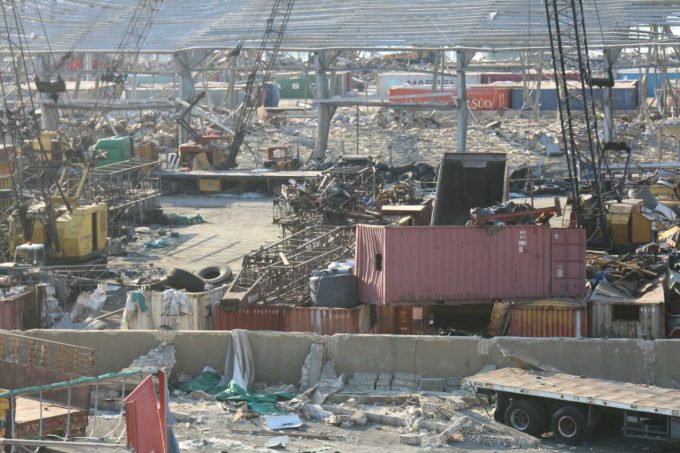Box volumes are back at Beirut Port – but so is corruption and instability
Three years after the port explosion in Beirut, container shipping has returned to normal – but ...
UPS: MULTI-MILLION PENALTY FOR UNFAIR EARNINGS DISCLOSUREWTC: PUNISHEDVW: UNDER PRESSUREKNIN: APAC LEADERSHIP WATCHZIM: TAKING PROFITPEP: MINOR HOLDINGS CONSOLIDATIONDHL: GREEN DEALBA: WIND OF CHANGEMAERSK: BULLISH CALLXPO: HEDGE FUNDS ENGINEF: CHOPPING BOARDWTC: NEW RECORDZIM: BALANCE SHEET IN CHECKZIM: SURGING
UPS: MULTI-MILLION PENALTY FOR UNFAIR EARNINGS DISCLOSUREWTC: PUNISHEDVW: UNDER PRESSUREKNIN: APAC LEADERSHIP WATCHZIM: TAKING PROFITPEP: MINOR HOLDINGS CONSOLIDATIONDHL: GREEN DEALBA: WIND OF CHANGEMAERSK: BULLISH CALLXPO: HEDGE FUNDS ENGINEF: CHOPPING BOARDWTC: NEW RECORDZIM: BALANCE SHEET IN CHECKZIM: SURGING

The race to rebuild Beirut port is on, following the devastating explosion at Lebanon’s key cargo gateway this year. According to a World Bank estimate, the damage to the country’s transport sector and port activities ranges between $580m and $710m, on top of reconstruction costs. Now a number of countries are positioning their flagship shipping and ports companies as key potential partners for the project – principally China, France and Turkey, according to this analysis from Global Risk Insights. “They are strategic moves in a geopolitical game for greater influence over the Eastern Mediterranean. As Lebanon is likely to adopt a build, operate and transfer (BOT) scheme to salvage the strategically important infrastructure, this implies that whoever is responsible for its reconstruction will control it and be the main beneficiary of its activities for years to come.”
Comment on this article